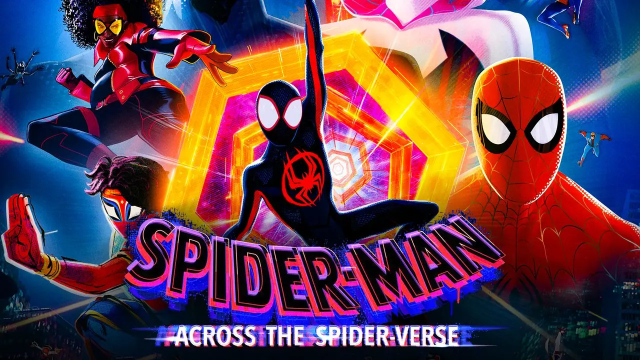The world of Spider-Man has evolved since the first web-slinger hit the silver screen. Still, few adaptations have made and innovated as much as Across the Spider-Verse. A sequel to the groundbreaking Into the Spider-Verse, it sends viewers deeper into the multiverse – blending stunning animation, appealing storytelling, and deep themes of identity and responsibility. What does it offer to its viewers in comparison to other films about superheroes? So, let’s get into it and take apart what puts Across the Spider-Verse in a league of its own for the Spider-Man series.
The Evolution of Spider-Man in Cinema
Spider-Man has been a fan-favorite superhero for decades, and his journey through cinema is long and storied. From the early Sam Raimi Spider-Man trilogy to the more recent Tom Holland portrayals in the MCU, each iteration has brought something new to the character. However, Across the Spider-Verse breaks the mold, embracing the comic-book roots of Spider-Man while pushing the boundaries of animation.
How Across the Spider-Verse Sets Itself Apart
Unlike live-action Spider-Man films, Across the Spider-Verse thrives on its ability to use the full potential of animation. It combines a unique comic book aesthetic with modern technology, creating a visual experience that feels both nostalgic and fresh. This movie takes the idea of a multiverse, already introduced in other Spider-Man films, and builds an intricate, emotionally-driven narrative around it.
The Art of Animation
One of the most talked-about aspects of Across the Spider-Verse is its animation style. It uses a combination of traditional hand-drawn techniques and cutting-edge computer-generated imagery (CGI) to create a vivid, almost surreal experience for viewers.
Blending Comic Book Elements with Modern Techniques
The film pays homage to its comic book origins, with scenes that mimic the look and feel of comic panels. Action sequences pop with exaggerated movements, bold colors, and dynamic effects, giving the movie a style all its own. It’s more than just visually impressive; the animation serves as a storytelling tool, highlighting key moments with artistic flair.
Comparison with Into the Spider-Verse
While Into the Spider-Verse set a high bar for animation, https://brainglow.net/qatar-news/ pushes it even further. The animation in this sequel is more refined, incorporating different art styles to represent various universes. Each world Miles visits has a distinct look and feel, making the multiverse not just a plot device but a visual journey as well.
Themes Explored in Across the Spider-Verse
The movie is more than just a visual spectacle—it dives deep into themes that resonate with both casual viewers and hardcore fans alike.
Multiverse Exploration
The concept of the multiverse is central to the plot. But beyond just a sci-fi gimmick, it serves as a metaphor for the choices we make in life and the different paths we could take. For Miles Morales, navigating the multiverse is a journey of self-discovery as he learns more about his place in the world—or rather, worlds.
Identity and Self-Discovery
A recurring theme in the movie is identity. As Miles encounters different versions of Spider-Man, each with their unique struggles and personalities, he is forced to confront his own doubts and insecurities. Who is Miles Morales, and what kind of Spider-Man does he want to be?
Character Development
Miles Morales: A Hero’s Journey
Miles Morales continues to grow as a character, evolving from the young, unsure Spider-Man in the first film to someone who takes on the weight of the multiverse. His personal struggles, such as balancing family expectations with his superhero responsibilities, add depth to his character.
Gwen Stacy’s Evolution
Gwen Stacy, aka Spider-Woman, also gets significant development in Across the Spider-Verse. Her storyline explores themes of friendship, trust, and redemption, making her more than just a sidekick to Miles.
Other Key Spider-Characters
From Peter B. Parker to the various alternate-universe Spider-People, each character adds a unique layer to the story. They’re not just background figures—they have their own arcs that contribute to the movie’s overall narrative.
The Role of Diversity and Representation
Why Diversity Matters in Superhero Movies
The importance of having a Black and Latino Spider-Man like Miles Morales cannot be overstated. Representation in superhero films helps audiences of all backgrounds see themselves in their heroes. Across the Spider-Verse doesn’t just add diversity for the sake of it; it makes it central to the story.
Breaking Stereotypes
The film breaks away from traditional superhero stereotypes, offering complex, multidimensional characters who defy expectations.
Plot Breakdown and Analysis
Key Plot Points
The movie follows Miles as he explores different dimensions, meets alternate versions of himself and other Spider-People, and faces new threats to his world.
Major Twists and Turns
The narrative is packed with surprises, keeping audiences on the edge of their seats. The multiverse introduces numerous possibilities, and the film cleverly plays with these to deliver some jaw-dropping moments.
The Role of the Villains
The antagonists in Across the Spider-Verse are not your typical villains. They’re complex, with motivations that often blur the line between good and evil. These characters add depth to the film’s themes of choice and consequence.
Visual Storytelling and Symbolism
The movie’s use of color and visual metaphors adds layers to the story. For instance, certain scenes use contrasting colors to symbolize internal conflict or pivotal moments in the plot.
Soundtrack and Its Influence
Much like Into the Spider-Verse, the soundtrack in this sequel is a crucial element. It sets the tone for each scene, using a mix of hip-hop, electronic, and orchestral music to match the film’s dynamic pace.
Easter Eggs and References
Fans of Spider-Man lore will find plenty to geek out about. From subtle nods to past Spider-Man films to references to iconic comic book storylines, the movie is filled with Easter eggs that reward keen-eyed viewers.
Cultural Impact
Across the Spider-Verse has left a significant mark on the superhero genre. Its innovative storytelling and representation have resonated with audiences, influencing how future Spider-Man projects will be approached.
Critical Reception
The movie has been met with critical acclaim, praised for its animation, character development, and bold storytelling. It also performed well at the box office, cementing its place as a must-watch for fans of the genre Across the Spider-Versehttps://www.theringer.com/.




